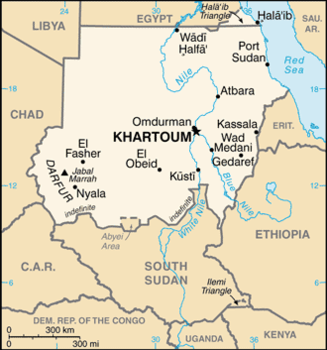The UN Office for the Coordination of Humanitarian Affairs (OCHA) has reported an outbreak of suspected Acute Jaundice Syndrome (AJS) in Sortony, North Darfur, in which some 134 cases have been reported since May.

Sortony hosts over 21,000 people who were displaced from Jebel Marra following hostilities earlier this year. Seven samples sent for analysis tested positive for Hepatitis E virus, and an outbreak of Hepatitis E has been declared in Sortony internally displaced persons (IDPs) site, North Darfur State by the State Ministry of Health (SMoH).
Humanitarian health, water and sanitation partners are working with the SMoH to address the causes of AJS and diarrhoea cases in Sortony. Efforts aimed at containing the outbreak include strengthening health promotion-related activities and improving water quality through chlorination. In addition, water quality surveillance and vector control activities have been strengthened, and active case finding is ongoing. Drugs and medical supplies to cover two months were provided to health clinics run by several agencies.
The clinical course of hepatitis E is similar to that of hepatitis A with no chronic form of the disease. Jaundice, fever, loss of appetite and lethargy are common symptoms.
People are infected primarily through the fecal-oral route, usually through contaminated water or food. There have been several cases of hepatitis E infection in France due to eating raw figatellu, which is made with pig liver.
Much like hepatitis A, the fatality rate is low with the exception of pregnant women where it can reach 20% among those infected in the third trimester. Liver failure is a frequent outcome with pregnant women.
Hepatitis E is found endemically in countries that have inadequate environmental sanitation. It is most frequently seen in Asia, Africa, Central America and the Middle East.
Related:
- Uganda reports progress towards reducing river blindness
- South Sudan cholera outbreak: More than 700 cases, most in Juba
- Trachoma in Ethiopia: Carter Center and Noor Dubai Foundation team up to battle blinding disease


One thought on “Hepatitis E outbreak in North Darfur”